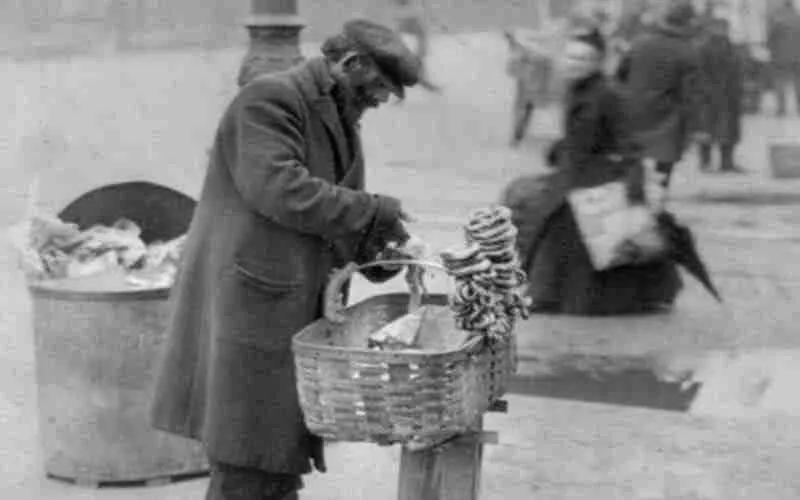
So what is a hawker? If you come across the old occupation “hawker” or “street hawker,” then your ancestor was a travelling salesperson or peddler. In essence, he or she sold goods, often door-to-door or at markets.
Was a hawker a traveller?
The occupation of hawker was common in Scotland during the 18th and 19th centuries, and many hawkers were self-employed. However, due to the itinerant nature of the work, hawkers were often viewed with a mix of suspicion. This was because they were also known as travellers or gypsies, terms used at the time.
Is the occupation hawker the same as a carter?
No, a carter transported goods using a horse and cart, while a hawker typically walked the streets to sell their goods. However, that doesn’t mean hawkers never used a horse and cart to carry their goods. Read my article on the old occupation of carters.
So, what did a hawker sell?
Typically, hawkers sold small items, such as household goods or textiles, which they carried with them as they moved from place to place. Unlike merchants who operated from fixed shops, hawkers travelled to reach their customers. This was particularly important in rural areas where people couldn’t easily access towns or larger markets.
Nevertheless, some hawkers sold particular products, such as fish. In coastal areas like Edinburgh’s Newhaven, for example, they were known as fishwives .
Also, others sold general goods and would shout about their wares while walking the streets. Essentially, it was a means to earn money without owning a shop.
In terms of legal recognition, hawkers were sometimes required to have licenses or permits, especially by the late 19th century, as governments attempted to regulate the trade. However, many hawkers operated informally, and the occupation was often seen as a way to escape poverty or supplement other forms of income.
In family history research,
if your ancestor was listed as a hawker in a census or a statutory register and you asked yourself – what is a hawker? then now you know.
Working as a hawker usually meant a lower socio-economic status. However, they probably had an enterprising spirit.
Let me know if you have a hawker in your family tree in the comments below.
Thank you for joining me on an another historical journey into an old occupation.
Please remember to leave a comment below and if you want me to write about an old occupation that you ancestor did, then please let me know.
Good luck with your family history research.
Until my next post, haste ye back.
Enjoyed this post?
Keep up-to-date with my latest posts and tips below:
We hate SPAM & promise to keep your details safe.
You may also like...
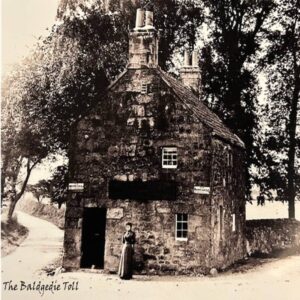
The Life of a Tollkeeper
A tollkeeper was a person who collected road fees from travellers. This old occupation was prominent during the 18th and 19th centuries.
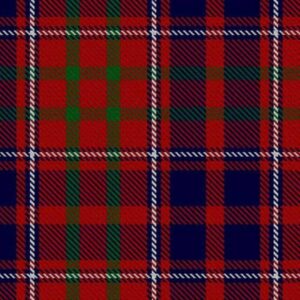
Cameron Surname: Origin, Meaning & History
The Cameron surname has Gaelic origins and it is associated with Clan Cameron, one of the most influential Highland clans.
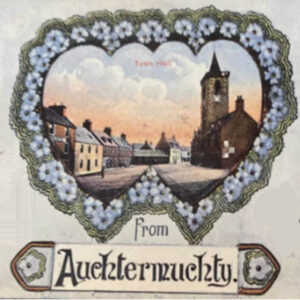
Ancestral Visit to Auchtermuchty, Fife
Auchtermuchty in Fife is known as Muchty to locals. What does Stratheden Whisky, Jimmy Shand and the Proclaimers have in common?
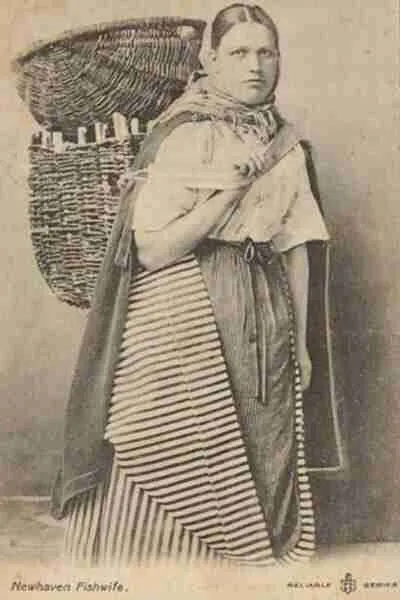
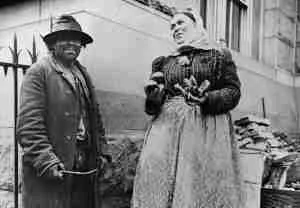

Hi, I have just discovered an ancestor in the 1891 census who has General Hawker as her Occupation. She is living alone and is 83 years old.
Hello Michael
There wasn’t a pension scheme as such in those days so she had to earn money somehow to survive. It must have been tough.
Sarah
hello,
I just read a copy of baptism record of my g grandfather dated 1887, it said in the occupation of father section, that, (My gg grandfather) was a Hawker – i could not imagine the difficulties they experienced in the 1800s, and the opinions about Hawkers from the people who were better off. they were no doubt survivors.
They must have been entrepreneurial – survival was key in those days.
thanks for your comment
Sarah